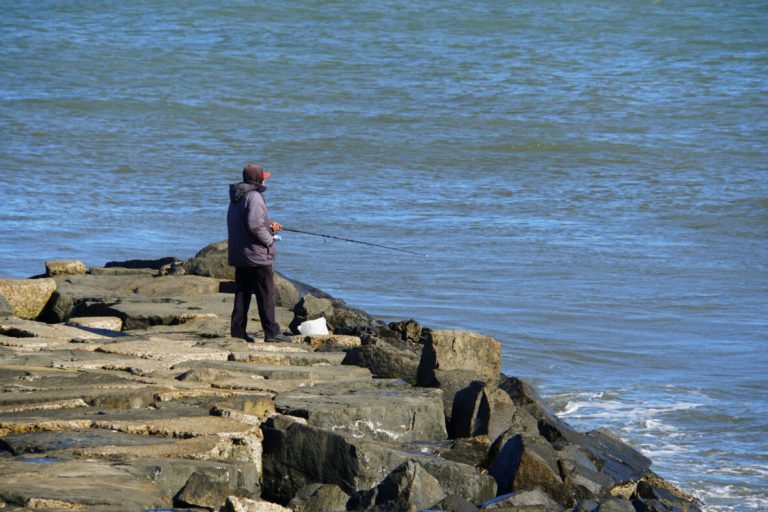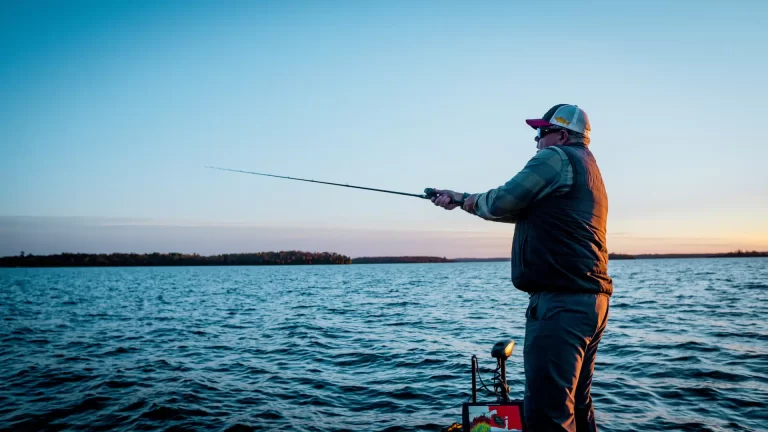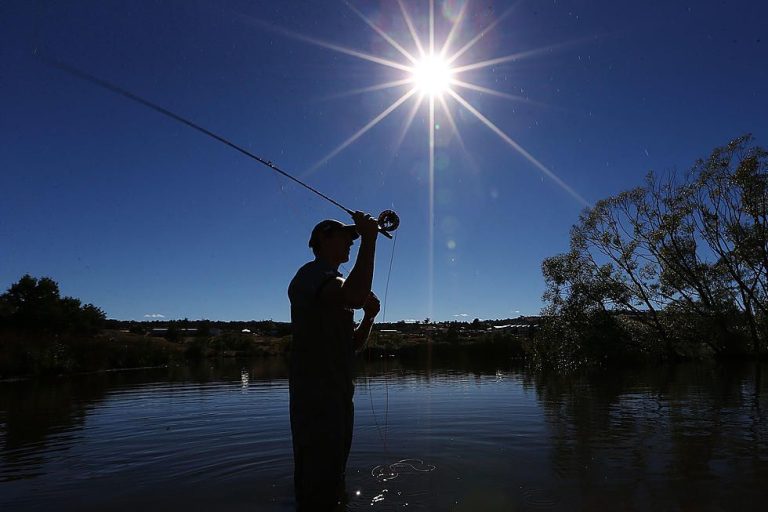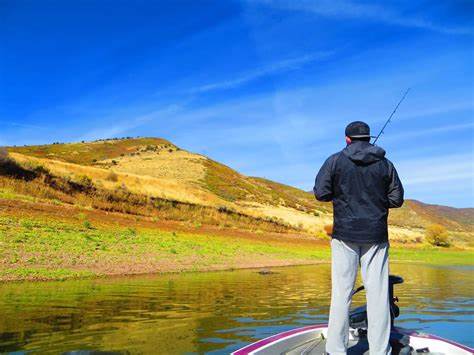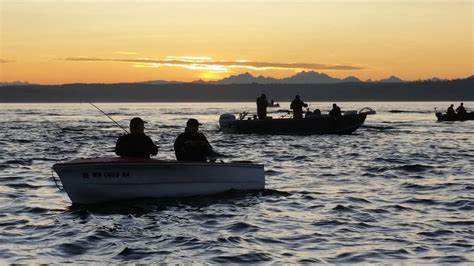Are you an angler dreaming of casting your line into Florida’s teeming coastal waters? Before you embark on your next saltwater fishing adventure, it’s crucial to understand the state’s licensing requirements. This comprehensive guide will equip you with everything you need to know about obtaining a Florida saltwater fishing license, ensuring you’re fishing legally while contributing to vital conservation efforts.
Why You Need a Florida Saltwater Fishing License
Florida’s marine ecosystems are a natural treasure, home to an incredible diversity of fish species and habitats. To protect and preserve these aquatic resources for generations to come, the Florida Fish and Wildlife Conservation Commission (FWC) has implemented a licensing system for saltwater fishing.
A saltwater fishing license serves two primary purposes:
- Legal Compliance: It ensures that anglers are fishing within the boundaries of state regulations, preventing overfishing and protecting vulnerable species.
- Conservation Funding: A portion of the revenue generated from license sales goes towards funding various programs and initiatives aimed at preserving and enhancing Florida’s marine ecosystems.
By obtaining a saltwater fishing license, you not only gain legal access to Florida’s coastal waters but also contribute to the long-term sustainability of the state’s fishing industry and natural resources.
Who Needs a Florida Saltwater Fishing License?
According to the FWC, the following individuals must possess a valid saltwater fishing license when fishing in Florida’s saltwater bodies:
- Non-residents over 16 years old: All non-Florida residents aged 16 and above must have a saltwater fishing license to fish in the state’s coastal waters.
- Florida residents aged 16 to 65: Florida residents between the ages of 16 and 65 are required to obtain a saltwater fishing license.
However, certain groups are exempt from this requirement, including:
- Children under 16: Youth under the age of 16 can fish in saltwater without a license.
- Florida residents over 65: Florida residents aged 65 and older are exempt from needing a saltwater fishing license, provided they have proof of age and residency.
- Disabled Florida residents: Florida residents with severe disabilities can obtain a free Florida Resident Disabled Person Hunting and Fishing License, allowing them to fish in saltwater without a separate license.
- Military personnel on leave: Active-duty U.S. military personnel from Florida can fish for free in saltwater for up to 30 days while on leave, with proper orders.
- Fishing from a licensed pier or charter boat: Individuals fishing from a licensed fishing pier or a charter boat with a valid license are exempt from needing their own saltwater fishing license.
It’s important to note that even if you’re exempt from needing a license, you must still follow all applicable fishing regulations and have proof of your exemption status when fishing.
Types of Florida Saltwater Fishing Licenses
The FWC offers several types of saltwater fishing licenses to cater to different needs and preferences. Here are the most common options:
| License Type | Resident Cost | Non-Resident Cost |
|---|---|---|
| Annual Saltwater Fishing License | $17 | $47 |
| Annual Non-Resident 7-day | – | $30 |
| 5-Year Saltwater Fishing License | $79 | $201 |
| Gold Sportsman’s License (Annual) | $100 | $201 |
| Gold Sportsman’s License (5-Year) | $494 | – |
| Lifetime Saltwater Fishing License | $126.50 – $301.50 (based on age) | – |
| Shoreline Saltwater Fishing License (Resident Only) | $7 | – |
Note: The Lifetime Saltwater Fishing License cost for Florida residents varies based on the age at purchase:
- 0-4 years: $126.50
- 5-12 years: $226.50
- 13 years and older: $301.50
In addition to these licenses, the FWC also offers specialized permits for activities like snook fishing, spiny lobster harvesting, and fishing in certain management areas. These permits may be required in addition to your saltwater fishing license, depending on the species you plan to target and the location you’ll be fishing.
Where to Purchase Florida Saltwater Fishing Licenses
Florida saltwater fishing licenses can be purchased from various sources, making it convenient for anglers to obtain them before their next fishing trip.
- Online: You can purchase your saltwater fishing license online through the FWC’s website, GoOutdoorsFlorida.com. This option allows you to print your license immediately or have it sent to you via email.
- County Tax Collector’s Offices: Most county tax collector’s offices in Florida offer saltwater fishing license sales. This is a convenient option if you prefer to purchase your license in person.
- Retail Stores: Many retail stores, such as Walmart, Bass Pro Shops, and other sporting goods outlets, sell Florida saltwater fishing licenses.
- By Phone: You can also purchase your license by calling the FWC’s toll-free number, 1-888-FISH-FLORIDA (1-888-347-4356).
When purchasing your license, be prepared to provide personal identification, such as a driver’s license or state-issued ID, as well as proof of residency if you’re a Florida resident. If you lose or damage your license, you can replace it at any of the above locations by presenting your identification and paying a replacement fee.
Step-by-Step Guide: Obtaining Your Florida Saltwater Fishing License
Now that you understand the different types of licenses available and where to purchase them, let’s walk through the process of obtaining your Florida saltwater fishing license.
- Determine Your Residency Status: Identify whether you are a Florida resident or a non-resident. This will affect the type of license you need and the associated cost.
- Choose Your License Type: Based on your residency status, fishing frequency, and preferences, select the appropriate license type from the options listed above.
- Gather Required Documents: Have your personal identification (driver’s license or state-issued ID) and proof of residency (if applicable) ready.
- Purchase Your License: You can purchase your license online, in person at a county tax collector’s office or retail store, or by phone.
- Print or Receive Your License: If purchasing online, you can print your license immediately or have it emailed to you. If purchasing in person or by phone, you’ll receive a physical copy of your license.
- Keep Your License Accessible: Always carry your license with you when fishing in Florida’s saltwater bodies, as you may be required to present it to law enforcement officers upon request.
- Renew Your License: If you’ve purchased an annual or 5-year license, make sure to renew it before it expires to avoid any penalties or fines.
By following these simple steps, you’ll be fully prepared to embark on your saltwater fishing adventures in Florida while ensuring compliance with state regulations and contributing to the preservation of the state’s marine ecosystems.
Conservation Efforts and Legal Requirements
Purchasing a Florida saltwater fishing license not only ensures you’re fishing legally but also contributes to vital conservation efforts that protect the state’s aquatic resources. A portion of the revenue generated from license sales goes towards funding various programs and initiatives aimed at preserving and enhancing Florida’s marine ecosystems.
These conservation efforts include:
- Habitat restoration and protection: Funds are allocated to restore and protect critical habitats, such as coral reefs, seagrass beds, and mangrove forests, which serve as nurseries for many fish species.
- Fish stocking programs: The FWC uses license revenue to support fish stocking programs, replenishing fish populations in areas where they have declined.
- Research and monitoring: Scientific research and monitoring programs are funded to better understand the health and dynamics of Florida’s marine ecosystems, informing effective management strategies.
- Law enforcement: A portion of the funds goes towards supporting law enforcement efforts to ensure compliance with fishing regulations and protect against illegal fishing activities.
In addition to purchasing a license, anglers in Florida must also adhere to various legal requirements and regulations. These include:
- Size and bag limits: Specific size and bag limits are in place for certain fish species to prevent overfishing and ensure sustainable populations.
- Closed seasons: Some species may have closed seasons during which fishing for them is prohibited to protect their spawning cycles.
- Gear restrictions: Certain types of fishing gear may be restricted or prohibited in certain areas to minimize habitat damage and bycatch.
- Marine protected areas: Fishing may be restricted or prohibited in designated marine protected areas to safeguard sensitive ecosystems and allow for habitat recovery.
It’s crucial for anglers to familiarize themselves with the latest regulations and guidelines set forth by the FWC to ensure they are fishing responsibly and legally. Failure to comply with these regulations can result in fines or other penalties. You can find the most up-to-date information on the FWC’s website.
Conclusion
Obtaining a Florida saltwater fishing license is a crucial step for anglers planning to explore the state’s diverse coastal waters. Not only does it ensure you’re fishing legally, but it also contributes to vital conservation efforts that protect Florida’s marine ecosystems for generations to come.
By understanding the licensing requirements, types of licenses available, costs, and where to purchase them, you can embark on your next saltwater fishing adventure with confidence and peace of mind. Remember to familiarize yourself with the latest regulations and guidelines set forth by the FWC to ensure you’re fishing responsibly and sustainably.
With its abundant marine life and world-class fishing opportunities, Florida is a true angler’s paradise. So, grab your rod, secure your saltwater fishing license, and get ready to experience the thrill of reeling in your next big catch in the Sunshine State’s coastal waters.
Can I use my Florida saltwater fishing license in other states?
No, your Florida saltwater fishing license is only valid for fishing in Florida’s saltwater bodies. If you plan to fish in other states, you’ll need to obtain the appropriate licenses and permits required by those states.
Do I need a separate license for freshwater fishing in Florida?
Yes, if you plan to fish in Florida’s freshwater bodies, such as lakes and rivers, you’ll need to obtain a separate freshwater fishing license. The saltwater fishing license does not cover freshwater fishing.
Can I fish from a pier or charter boat without a license?
Yes, you do not need a saltwater fishing license if you’re fishing from a licensed fishing pier or a charter boat with a valid license. The pier or charter boat license covers all individuals fishing from those locations.
How long is my Florida saltwater fishing license valid?
The validity period of your license depends on the type you purchase. Annual licenses are valid for one year from the date of purchase, while 5-year licenses are valid for five consecutive years. Lifetime licenses, as the name suggests, are valid for the lifetime of the holder and never need to be renewed.
Can I renew my Florida saltwater fishing license online?
Yes, you can renew your saltwater fishing license online through the FWC’s website, GoOutdoorsFlorida.com. Simply follow the prompts and provide the necessary information to complete the renewal process.
